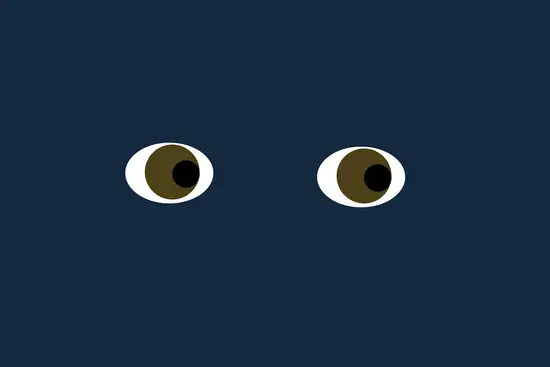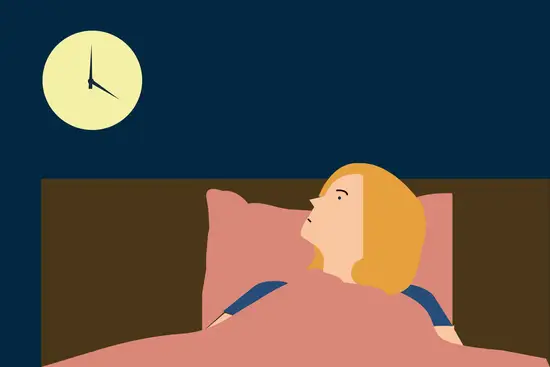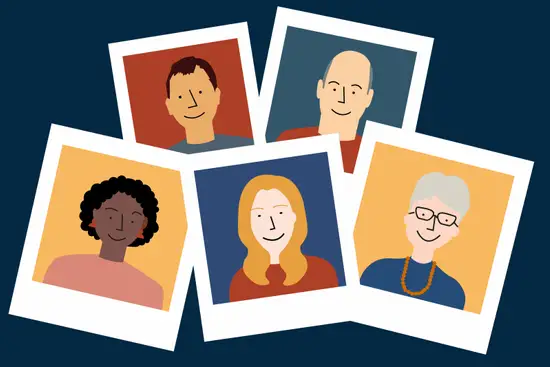Many people who are experiencing poor sleep report feeling ‘fatigue’ during their daily lives. While true fatigue is known to be directly associated with sleep/wake disorders, it seems that there’s a lot of confusion around sleepiness, tiredness and true fatigue.
In this article, we’ll explain what fatigue actually is, how it’s linked to sleep problems and what steps you can take to reduce fatigue in your life.
So what exactly is fatigue?
For a symptom that’s so commonly reported, there’s actually a distinct lack of consensus on what fatigue is. There’s no standard definition of fatigue and researchers struggle to agree on exactly how to classify it.
In fact, it’s probably easier to define what fatigue is not. It’s often confused with being tired or feeling sleepy but it’s neither. It’s an independent symptom of sleep disturbance.1
According to the NHS website:
Fatigue is when the tiredness is often overwhelming and isn’t relieved by sleep and rest.
Another good definition from the scientific literature is:
A subjective lack of physical and/or mental energy that is perceived by the individual or caregiver to interfere with usual and desired activities.2
So fatigue can be experienced physically, mentally or as a combination of both. If you find yourself unable to concentrate on everyday tasks (for instance, during work) or you’re too exhausted to go about your daily life, then you may be fatigued.
Your personal fatigue level is specific to you. Some people spend their days energetically filling every moment with activity. Others take life at a more sedate pace.
We all have our own measure of what our normal energy level is, what tiredness is and what feels like something more than being tired.
Our energy levels naturally dip and peak all the time but when the feeling of low energy persists week on week, it can signify that you might be fatigued.
Additionally, if you feel you’re sleeping well but you’re still waking up without the energy to get through the day, then you could be experiencing fatigue due to a sleeping disorder, depression or a combination of both. In this instance, it’s worth scheduling a trip to your GP.
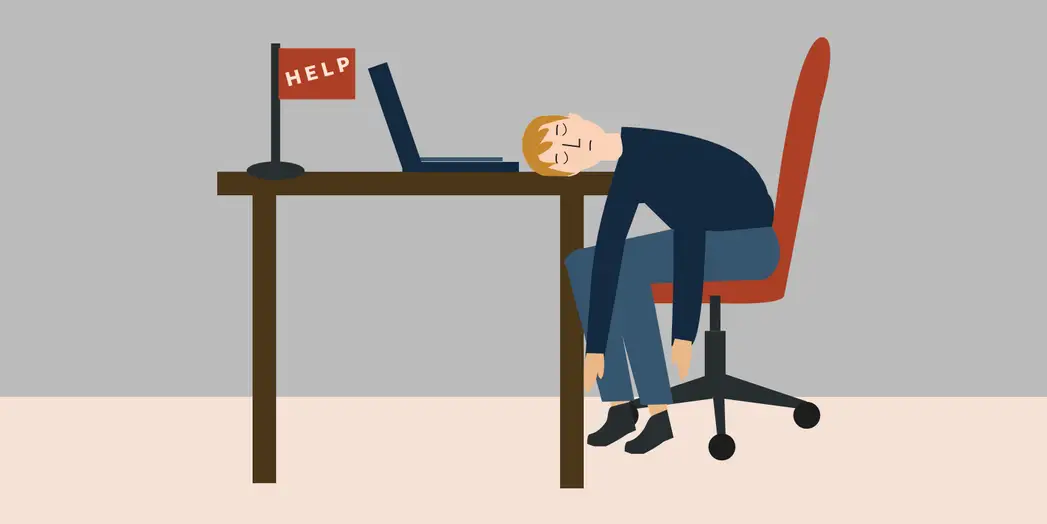
Types of fatigue
Fatigue can be categorised in many different ways and there doesn’t appear to be a consensus on this in the literature. Given the definitions above, we’ve chosen to go with three subtypes of fatigue:
- mental
- physical
- general.
Mental fatigue
Mental fatigue can occur after a period of doing something that requires a lot of brain power. It could be a work project, a stressful situation/period in life or anything else that requires your brain to be more active than usual.
Mental fatigue can leave you feeling drained, overwhelmed by everyday life and lacking motivation. You may find decision-making difficult or impossible. Mental fatigue can also lead to changes in appetite (stress-eating or appetite loss) and may result in insomnia.
Physical fatigue
Normal physical fatigue usually occurs after a period of physical exertion. For example, you may feel physically fatigued:
- after playing sports
- during a particularly busy day
- following any intense physical activity.
Your muscles need recovery time, so physical fatigue is usually a passing sensation where the muscles are too tired to function optimally.
During physical fatigue, you may feel less capable of physical activity. Your body needs to recover before you can perform the same level of activity and for full recovery, sleep is required. After a period of sleep, the muscles are better recovered and the body is ready for further activity.
Physical fatigue can also be exacerbated by poor sleep. When a person is sleeping badly day after day, then the body doesn’t get a full recharge: muscle repair isn’t efficient, the body doesn’t go through a full reset each night and you feel less able to carry out physical activity.
When this continues for weeks and months, the result is that you feel completely drained. Even simple physical activities can feel like they require a huge amount of effort and the desire to just sit still and do nothing can become irresistible.
General fatigue
General fatigue can be a mixture of both mental and physical fatigue or can manifest as a general feeling of lethargy that stops you from getting on with your daily life.
Sleep problems can cause both mental and physical fatigue and both can result in an inability to get anything done, a total lack of mental or physical energy and the feeling that everyday life is completely overwhelming.
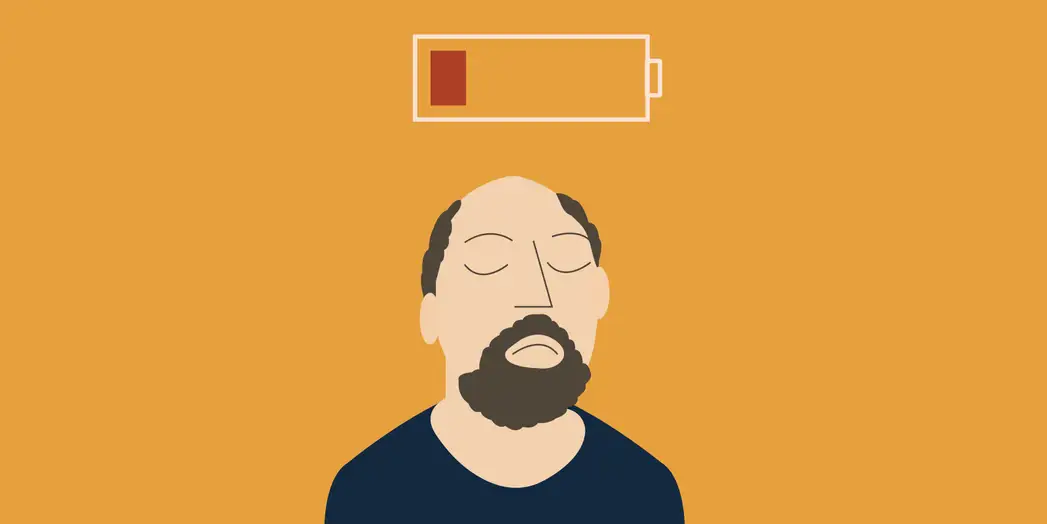
….And what isn’t fatigue
It’s probably useful to clarify exactly what is not fatigue …and what’s commonly mistaken for it. Firstly, as mentioned above, feeling tired isn’t fatigue. If you feel tired or sleepy but feel better after a good sleep, then you’re not experiencing fatigue.
Daytime sleepiness is often reported alongside fatigue, especially in people with sleep problems, but the two should not be confused. Daytime sleepiness is exactly as it sounds: you feel sleepy. With fatigue you are worn out but not sleepy.
Sleepiness differs from fatigue in that the sensation of being sleepy generally builds up over the day and is relieved by sleep. Fatigue is not relieved by sleep.
If your symptoms come and go often and don’t interfere with your daily life, then they’re most likely due to other causes. Some short-duration fatigue is completely normal: you can experience muscle fatigue after exercising or mental fatigue after a day of revising for an important exam.
But both of these types of activities result in acute forms of fatigue and the feeling passes relatively swiftly, usually after sleeping.
Any short-term sensation of low energy, low mood or inability to get things done does not necessarily signify fatigue. When these sensations persist over the longer term and interfere with your daily life then it’s worth talking to your healthcare provider.
Can we measure fatigue?
Just as fatigue is hard to define, there’s also a lack of consensus on how to measure it. Many different questionnaires have been developed to try to give a number or level to the fatigue that someone is experiencing. These are often used in research settings and by doctors.
The most commonly used is a scale known as the Fatigue Severity Scale (FSS). This is calculated using a short, nine-question questionnaire in which answers are scored as a number, where one=strongly disagree and seven=strongly agree.
The final score for the nine questions is then used to give a measure of how fatigued the person is. The lowest score possible is seven and the highest is 63. Higher scores indicate higher levels of fatigue. People with fatigue usually score more than 36.
More often, it’s the average of the nine questions that’s used, which gives a score between one and seven. Healthy people tend to have a score around 2.3, while those experiencing fatigue record scores of four or above.
This scale was originally created to measure fatigue in two autoimmune disorders: multiple sclerosis and lupus.3 It was found to be highly accurate in both groups and has since been used successfully to measure fatigue associated with many different illnesses and disorders.
Fatigue and sleep disorders
A key research study from 1997 identified that fatigue is a commonly reported symptom across a whole spectrum of sleep disorders. 1 The level of fatigue was assessed by the FSS questionnaire, which revealed average scores consistent with severe fatigue, across the range of disorders.
Studies have shown that people with restless legs syndrome (RLS), obstructive sleep apnoea (OSA), narcolepsy and insomnia are all likely to report fatigue as one of their primary symptoms. Indeed, in insomnia, the most common daytime symptom is reported to be fatigue.4
The principal way to combat fatigue resulting from a sleep disorder is to get adequate, restorative sleep. It’s logical that people with problems sleeping will experience fatigue as their sleep is way below optimal. Yet, while we know that ‘poor sleep’ can lead to fatigue, this in itself is too vague.
Is poor sleep the root of fatigue?
Studies have aimed to identify just what aspects of poor sleep correlate with daytime fatigue symptoms. Poor sleep has many aspects, encompassing:
- trouble getting to sleep (sleep latency)
- trouble staying asleep
- repeatedly waking during the night
- inability to get back to sleep once awake
- waking too early.
To try to figure out what causes fatigue, researchers often combine measuring fatigue using the FSS with polysomnography (PSG), which looks at a person’s brainwaves during sleep, to better understand the sleep problem.
PSG measures exactly how well someone sleeps and gives us detailed information about the stages of sleep. It can therefore provide a more accurate view of the person’s sleep than just asking someone how well they think they’re sleeping.
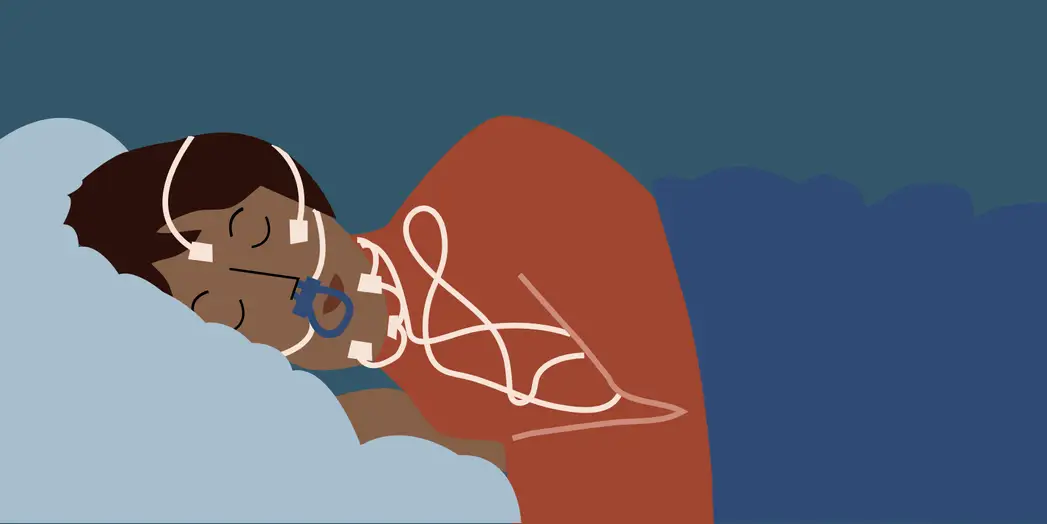
Overall, there doesn’t appear to be a correlation in the scientific literature between the type of poor sleep experienced (be it difficulty getting to sleep, waking up too early or anything in between) and the level of fatigue experienced.
A study using PSG, along with the FSS questionnaire, found that that the severity of fatigue is not determined by the level of sleep disturbance.4 This means that how fatigued you’re feeling does not necessarily correspond with how badly you’re actually sleeping.
The level of daytime sleepiness was also NOT associated with fatigue. Multiple studies have highlighted that daytime sleepiness and perceived fatigue appear to have little overlap with each other.45
So it’s perfectly possible for someone to have high levels of fatigue but low levels of daytime sleepiness.
Fatigue, insomnia and the brain
We know that fatigue is a symptom of insomnia but the type of insomnia can also influence the fatigue experienced.4 People with psycho-sociological insomnia (the most common type of insomnia) have been shown to have higher fatigue scores than other types of insomnia.1
Psycho-sociological insomnia is where a person focuses on their sleep and worries about not getting enough sleep. They then go to bed worrying about how their lack of sleep is going to affect them the following day and then struggle to sleep due to this heightened anxiety.
Sleep studies that record brainwaves during sleep can reveal that a person’s perception of how they’re sleeping does not reflect how they’re actually sleeping. For example, someone with insomnia may believe that they‘re getting very little sleep.
A sleep study may show a person is getting a lot of sleep but not good quality, restorative sleep. We often think that the way to improve our daytime symptoms is to get more sleep but this isn‘t always the solution.
While we know that sleep duration may not predict the level of fatigue, we do know that the more severe the insomnia, the more severe the fatigue.
Knowing that fatigue is not necessarily caused by lack of sleep, several researchers have put forward the idea that it may be at least in part caused by perception of sleep.67 What this means is that if you believe that your sleep is particularly bad, then you may be at higher risk of fatigue.
Additionally, there’s evidence to suggest that fatigue can alter our perception of tasks, leading our brains to exaggerate the effort associated with carrying out our daily life.8
For example, people in a study were asked to look at a jigsaw puzzle and estimate how long it would take to complete it and how many pieces were in the puzzle.
The study found that the greater the fatigue, the longer the person thought the puzzle would take and the more pieces they thought it contained. In their fatigued state, they were perceiving the task of putting together a puzzle to be significantly more onerous than it actually was.8
So it appears that when we are fatigued, we are less likely to achieve our tasks as everything appears a little more difficult than it really is.
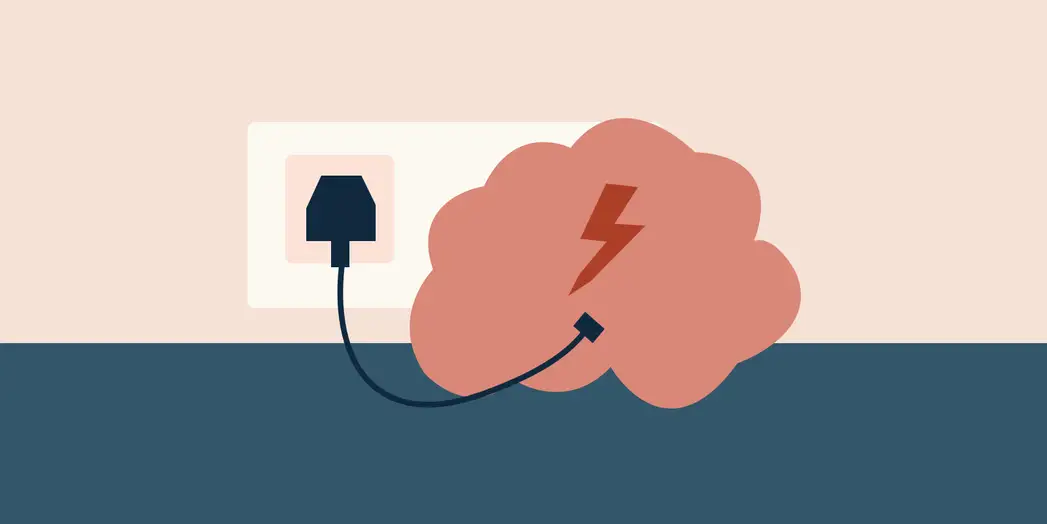
The fatigued mind
Several research groups have used brain imaging techniques to try to identify the areas of the brain which are associated with fatigue.19 This involves taking brain scans of people experiencing fatigue and looking at which areas of the brain are more or less active than in non-fatigued people.
A particularly interesting finding is that areas of the brain associated with our body clock have been identified as important in relation to fatigue. One such region is the suprachiasmatic nucleus (SCN) which, as its name would suggest, is quite complex.
The SCN acts as the master time-keeper in the body. Picture a time when everybody set their watches and clocks by the town hall clock. The body’s equivalent of the town hall clock is housed in the SCN. All around the body, cells have their own smaller molecular clocks, which are set in line with that of the SCN.
It’s responsible for controlling all of our circadian rhythms (processes that occur on a ~24 hour cycle), such as:
- when we eat
- when we are active
- when we sleep.
It does this by regulating chemical signals throughout the body.
During the light hours, the SCN gives signals to tell us to be active, to eat, to make use of the day. When light is low, it regulates signals telling us to rest and to sleep.
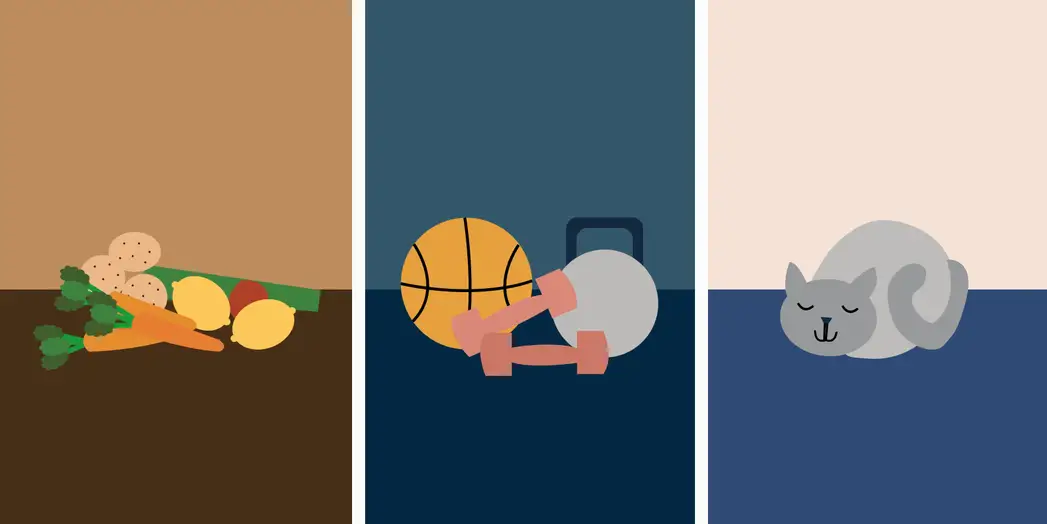
In a fatigued state, regulation by the SCN is affected. Research has shown that activity in this region is altered in fatigued subjects.9
It’s been suggested that if signals from this region are ‘muffled’ somehow then this would result in lowered energy, difficulty concentrating and increased fatigue.
In insomnia patients, disrupted sleep is thought to knock the SCN out of sync with day/light cycles. When this important regulator is put off balance, the result can be ‘feelings of malaise similar to that experienced during jet lag or rotating shift work’,9 since the SCN also receives information about the body’s activity and bases its signalling around that information.
A fatigued person generally has reduced activity, which is another important regulator of the SCN. If the SCN is receiving confused messages from the body it, in turn, will be sending out the wrong signals at the wrong time and the body’s rhythms will be thrown out of balance.
So when a person has insomnia, the SCN becomes dysregulated, the person begins to feel fatigue and fatigue itself can further disregulate the SCN. This sets in motion a vicious cycle which will continue unless the insomnia is treated.
While we know that the SCN is not the only part of the brain which may show altered activity due to fatigue, it’s highly likely that this region has an important role in insomnia-related fatigue and so further research here may help us to better treat insomnia-related fatigue.
Resting in bed won’t help
As we’ve discussed above, fatigue is not reduced by a longer time spent in bed. It’s only through getting adequate, good-quality sleep that this problem will improve. For example, getting 12 hours of poor sleep will not have the same effect as eight hours of restorative sleep.
In one study, researchers actually found that longer sleep time was associated with higher fatigue in people with severe insomnia.
We often assume that if we‘re feeling fatigued then we should sleep more. In fact, the amount of time spent sleeping is not as important as the quality of sleep achieved.
If a person is sleeping for 10 hours but the sleep quality is poor, then they may not get the same benefits as someone achieving eight hours of good-quality sleep.
Studies have shown that when insomnia is treated by sleep reduction, levels of fatigue actually reduce.3 So while we don’t know the exact cause of insomnia-induced fatigue, we do know that quality sleep is key to reducing it.
How can you combat fatigue?
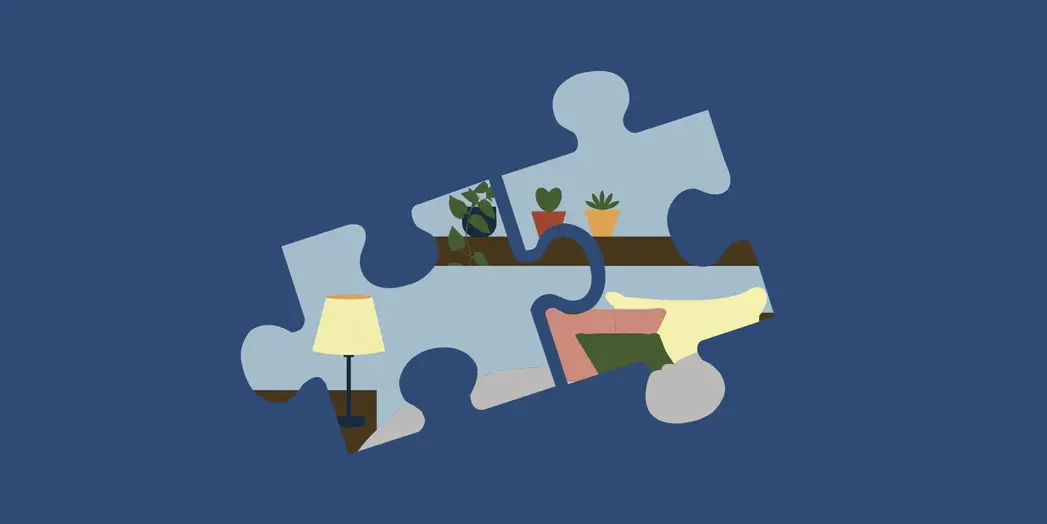
Happily, there are numerous approaches you can take to reduce fatigue. Firstly, it’s important to rule out underlying medical conditions. Sleep problems are only some of the causes of fatigue and there are several medical reasons that can cause it.
A first step would be to chat to your healthcare provider to rule out any underlying causes. If a sleep disorder is suspected, then there are several factors that can put you at higher risk of fatigue, including:
- being female
- younger age
- smoking
- high BMI
- low sleep efficiency
- mental illness, such as depression.35
It’s clear from this short list that some of these factors can be addressed by health and lifestyle changes. Quitting smoking, maintaining a healthy weight, optimising sleep and looking after your mental wellbeing could all lead to a reduction in the levels of perceived fatigue.
Ensuring good sleep hygiene is another way to combat fatigue, so it’s a good idea to think about your sleep habits and sleep environment if you feel like you’re suffering from daytime fatigue.
Cognitive behavioural therapy is highly effective for treating fatigue
Fatigue cannot be treated with medication. To treat the problem, you need to get to its root cause. There’s a wealth of literature showing that cognitive behavioural therapy (CBT) can help to diminish fatigue in a range of different illnesses, diseases and conditions.
CBT works by focussing on the person’s attitudes and beliefs, in order to try to change or challenge those behaviours and thoughts that are causing problems and to build healthier connections to equip the person with better tools to deal with emotional issues.
As we’ve discussed above, level of fatigue is often related more to how the person thinks they’re sleeping, as opposed to how much sleep they’re actually achieving. If CBT can help the person to improve their perception of sleep, then their fatigue levels will consequentially decrease.
When it comes to reducing fatigue related to sleep disorders, the gold standard is undoubtedly cognitive behavioural therapy for insomnia (CBTi).
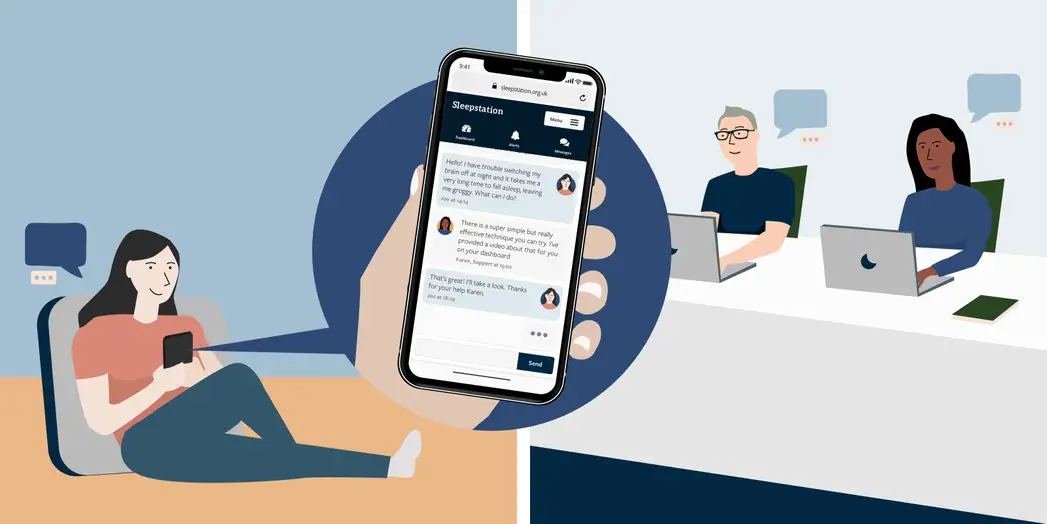
In fact, there’s extensive literature that shows that CBTi is effective at treating insomnia-related fatigue in a whole host of different illnesses and disorders, such as (but not limited to) depression, multiple sclerosis, chronic fatigue syndrome, lupus and during/following cancer treatment.1011121314
CBTi is one of the services we offer in our digital sleep clinic, allowing you to get the right help, depending on the severity of your sleep problem and the level of support you need.. You can find out more about Sleepstation and how CBTi works here.
So the take-home here is that you shouldn’t feel that you need to struggle on your own with fatigue. If you feel like it’s interfering with your daily life then there are many options available to help you put a swing back in your step.
Summary
- Sleepiness, tiredness and fatigue are not the same thing.
- Fatigue is the most commonly reported symptom in insomnia.
- Staying in bed will not reduce feelings of fatigue.
- By treating insomnia, we can reduce symptoms of fatigue.
References
- Lichstein KL, Means MK, Noe SL, Aguillard RN Fatigue and sleep disorders Behav Res Ther. 1997;35(8):733-40. ↩︎
- DeLuca J, Genova HM, Capili EJ, Wylie GR. Functional neuroimaging of fatigue. Phys Med Rehabil Clin N Am. 2009;20(2):325–37. ↩︎
- Krupp LB, LaRocca NG, Muir-Nash J, Steinberg AD. The fatigue severity scale. Application to patients with multiple sclerosis and systemic lupus erythematosus. Arch Neurol. 1989;46(10):1121–3. ↩︎
- Fortier-Brochu E, Beaulieu-Bonneau S, Ivers H, Morin CM. Relations between sleep, fatigue, and health-related quality of life in individuals with insomnia. J Psychosom Res. 2010;69(5):475–83. ↩︎
- Hossain JL, Ahmad P, Reinish LW, Kayumov L, Hossain NK, Shapiro CM. Subjective fatigue and subjective sleepiness: two independent consequences of sleep disorders? J Sleep Res. 2005;14(3):245–53. ↩︎
- Barsevick AM, Cleeland CS, Manning DC, O’Mara AM, Reeve BB, Scott JA, et al. ASCPRO recommendations for the assessment of fatigue as an outcome in clinical trials. J Pain Symptom Manage. 2010;39(6):1086–99. ↩︎
- Mathew GM, Martinova A, Armstrong F, Konstantinov V. The role of sleep deprivation and fatigue in the perception of task difficulty and use of heuristics. Sleep Sci. 2018;11(2). ↩︎
- Russell C, Wearden AJ, Fairclough G, Emsley RA & Kyle SD. Subjective but not actigraphy-defined sleep predicts next-day fatigue in chronic fatigue syndrome: A prospective daily diary study. 2016 Sleep, 39(4), 937–944. ↩︎
- Harrington ME. Neurobiological studies of fatigue. Prog Neurobiol. 2012;99(2):93–105.
↩︎ - Heins MJ, Knoop H, Burk WJ, Bleijenberg G. The process of cognitive behaviour therapy for chronic fatigue syndrome: which changes in perpetuating cognitions and behaviour are related to a reduction in fatigue? J Psychosom Res. 2013;75(3):235–41. ↩︎
- Gotts Z, Deary V, Newton JL, Ellis J. Treatment of insomnia reduces fatigue in chronic fatigue syndrome in those able to comply with the intervention. Fatigue. 2016;4(4):208–16. ↩︎
- Garland SN, Xie SX, DuHamel K, Bao T, Li Q, Barg FK, et al. Acupuncture versus Cognitive Behavioral Therapy for insomnia in cancer survivors: A randomized clinical trial. J Natl Cancer Inst. 2019;111(12):1323–31. ↩︎
- Clancy M, Drerup M, Sullivan AB. Outcomes of cognitive-behavioral treatment for insomnia on insomnia, depression, and fatigue for individuals with multiple sclerosis: A case series: A case series. Int J MS Care. 2015;17(6):261–7. ↩︎
- Vethe D, Kallestad H, Jacobsen HB, Landrø NI, Borchgrevink PC, Stiles TC. The relationship between improvement in insomnia severity and long-term outcomes in the treatment of chronic fatigue. Front Psychol. 2018;9:1764. ↩︎
